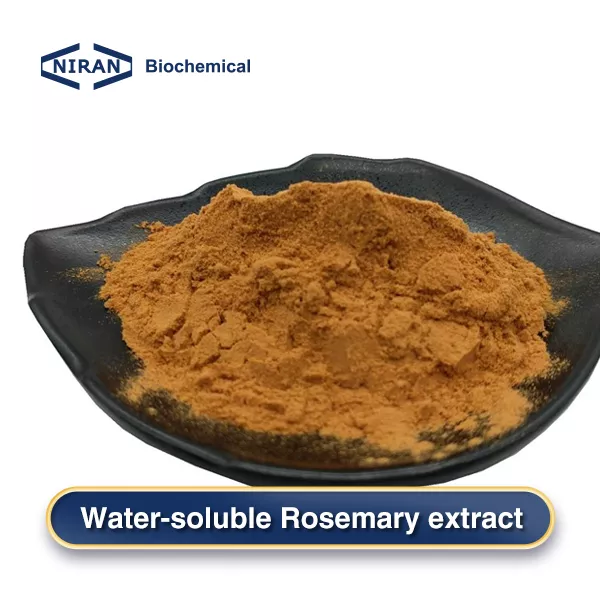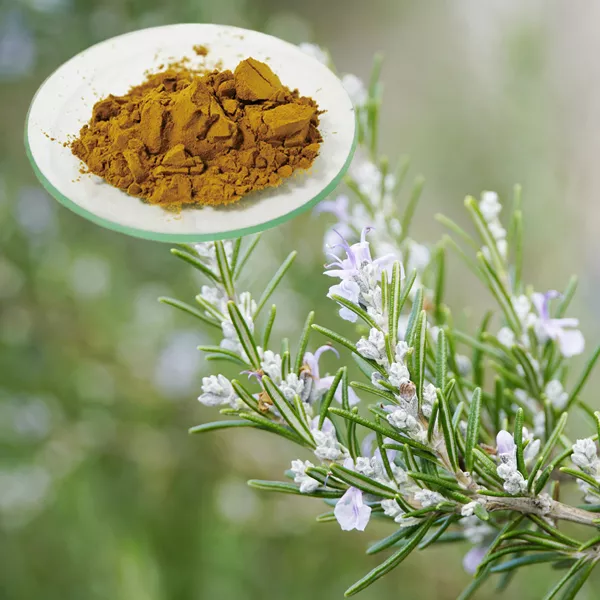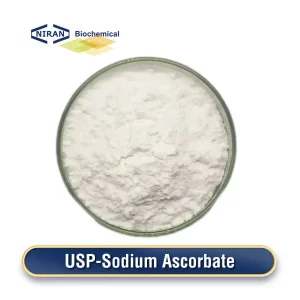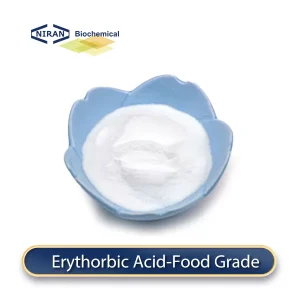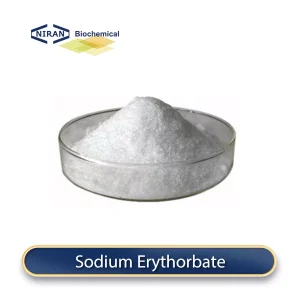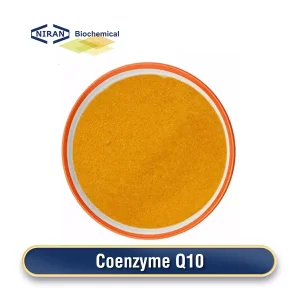What is Rosmarinic Acid?
Isolated from rosemary, a plant belonging to the Lamiaceae family, rosmarinic acid is an organic chemical that is soluble in water and contains phenolic acid. It appears as a light yellow to brown powder that is easy to absorb moisture; it has a special herbal smell of rosemary and is widely used in food, beverage, biopharmaceutical industry and cosmetics industry.
There are several preparation processes for rosmarinic acid in China:
1. Soak rosemary plants (such as rosemary leaves) in an organic solvent and use the solvent to extract rosmarinic acid from the plant material. The extracted solvent is concentrated and refined to obtain rosmarinic acid. Its great efficiency and very easy operation make it a popular choice in household industry.
2. Synthesize rosmarinic acid in the laboratory through chemical reactions. This method involves the use of specific chemical reagents and catalysts, and usually requires strict control of reaction conditions. Chemical synthesis is used for experimental research and small-scale production.
3. Use specific microorganisms (such as bacteria, yeast or fungi) to ferment and produce rosmarinic acid. Microorganisms convert raw materials into rosmarinic acid through metabolic processes. Small-scale production and research are the typical uses for this technique.
Recommended Dosage:
| Food name | Maximum usage(g/kg) |
| Beverages | 0.05-0.2 g/kg |
| Candy | 0.1-0.3 g/kg |
| Juice | 0.05-0.15 g/kg |
| Dairy products | 0.05-0.2 g/kg |
| Biscuits | 0.1-0.3 g/kg |
| Cakes | 0.1-0.3 g/kg |
| Chocolate | 0.1-0.3 g/kg |
| Seasonings | 0.2-0.5 g/kg |
| Meat products | 0.2-0.4 g/kg |
| Salad sauce | 0.2-0.5 g/kg |
| Beer | 0.05-0.2 g/kg |
| Soft drinks | 0.05-0.2 g/kg |
| Functional drinks | 0.1-0.3 g/kg |
| Cheese | 0.1-0.3 g/kg |
| Soy sauce | 0.2-0.5 g/kg |
Rosmarinic Acid Has A Wide Range Of Uses
1. Rosmarinic acid is a powerful antioxidant that can neutralize free radicals, reduce oxidative stress, and fight cell aging and damage.
2. Rosmarinic acid has an inhibitory effect on a variety of bacteria, fungi, and viruses, which helps to extend the shelf life of food and prevent spoilage.
3. Rosmarinic acid can inhibit the production of inflammatory mediators, reduce inflammatory reactions, and has potential therapeutic effects on a variety of inflammatory diseases.
4. Rosmarinic acid can enhance the body’s immune function, increase the activity of immune cells, and enhance resistance to disease.
5. Histamine release can be inhibited, allergic reactions can be decreased, and allergic illnesses can be somewhat alleviated with rosmarinic acid.
6. Rosemary acid has the ability to shield nerve cells and can impede the development of neurodegenerative illnesses like Alzheimer’s.
User asked question:
Q: Is it true that rosmarinic acid affects people’s memory?
A: Among other plants, rosemary contains the polyphenol component rosmarinic acid. It has powerful antioxidant and anti-inflammatory properties, which can protect brain cells from damage caused by oxidative stress and inflammation, thereby helping to maintain and improve cognitive function.
Some studies have shown that rosmarinic acid can protect neurons and prevent the development of neurodegenerative diseases, which may help maintain and improve memory.
In animal experiments, rosmarinic acid was found to improve the learning and memory abilities of experimental animals, suggesting that it may have potential in improving human cognitive function.

